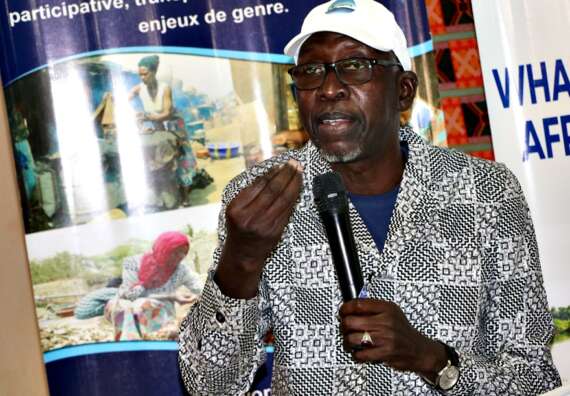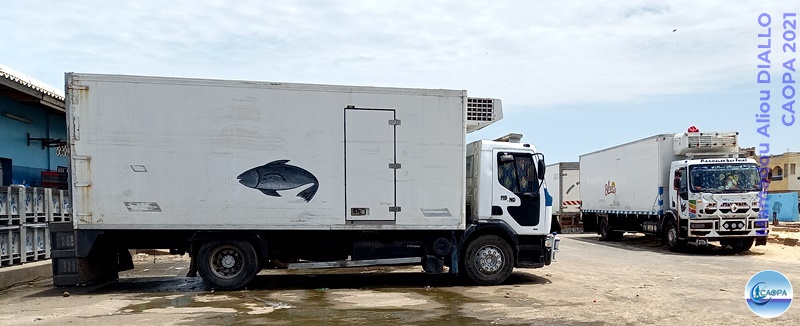The Ministerial Conference on Cooperation between African States bordering the Atlantic Ocean (ATLAFCO) in partnership with the intergovernmental organization for information and cooperation for the marketing of fisheries products in Africa (INFOPÊCHE) organized a workshop in Abidjan from 10 to 12 March 2022.
Under the theme: “access to the regional and international market of fisheries and aquaculture products”, the workshop aimed “to contribute to a better access to the regional and international market of fisheries and aquaculture products.”
Specifically, we add, is to strengthen the role and importance of fisheries and aquaculture products in economic growth, through a better contribution to the trade balance and the balance of payments.
The meeting was attended by representatives of Member States, producers’ organizations, Info-pêche, private promoters and officials of the fisheries sector of the maritime economies, ATLAFCO, etc.
The African Confederation of Professional Organizations of artisanal fisheries (CAOPA) was represented by its President, Gaoussou GUEYE. He made a presentation on “the role of artisanal fisheries in the international trade of fisheries products: case of Senegal”.
In his presentation, Mr. GUEYE said that fisheries play a key role in eliminating hunger, promoting health, creating jobs and reducing poverty
In 2019, he said, exports of fisheries and aquaculture products were valued at US$161 billion globally, including US$87 billion in developing countries.
Quoting a 2014 FAO report, CAOPA’s number one points out that, 12.3 million people work in fisheries, over 7.5 million men and 2.3 million women in artisanal fisheries. “In sub-Saharan Africa, fish represents on average 22% of protein intake, and in some countries, this level exceeds 50%,” he says.
In view of this observation, Gaoussou GUEYE said that today, more than 800 million people suffer from chronic malnutrition. And the main challenge remains how to feed the planet and preserve resources for future generations.
Trade of fishery products and their place in the Senegalese economy
This country of 700 kilometers of maritime coastline has 17% of its population dependent on fishing. And the estimated trade value of exports in 2020 is 249.61 billion FCFA.
The presentation report of the draft budget 2021 of the Ministry of Fisheries and Maritime Economy, consulted by CAOPA points out that in 2019, production reached 566,693 tons, 80% of which came from artisanal fisheries.
Fishing contributes 3.2% to the national GDP and 12% to the GDP of the primary sector.
Fishing plays a key role in nutrition and food security with a contribution of 70% to the protein intake of animal origin. In Senegal, the average per capita consumption is estimated at 29kg/year.
Trade of fishery products
 The trade in fishery products is somewhat complex and is subject to some rules, notably the rules of origin.
The trade in fishery products is somewhat complex and is subject to some rules, notably the rules of origin.
Another report by the Directorate of Fishing Processing Industries (DITP) indicates that in 2020, the flow of fishery products leaving or leaving Senegal is estimated at a volume of 363,942.28 tons against 391,077.22 tons in 2019, a decrease of 6.94% in relative value (-27,134.94 tons).
For the estimated trade value (ETV), it amounts to 297.89 billion CFA francs, against 402.84 billion CFA francs in 2019, a decline of 26.06%.
The total trade carried out involved 68 countries including 28 in Africa, 19 in Europe including 15 in the European Union (EU), 15 in Asia and 6 in America. Of the 68 countries, the 15 countries concentrate more than 90.55% of the volume and 87.24% of the ECV of trade.
Exports of fishery products
Exports of fishery products during the year 2020 reached a volume of 291,087.05 tons against 285,237.07 tons in 2019, an increase of 2.05% in relative value (+5849.98 tons).
For the trade value, it is estimated at 249.61 billion CFA francs against 294.53 billion CFA francs in 2019, a decrease of 15.25%.
Exports represent 80% of the volume of trade corresponding to 83.8% of the estimated trade value.
Download the presentation in PDF
Mamadou Aliou DIALLO


